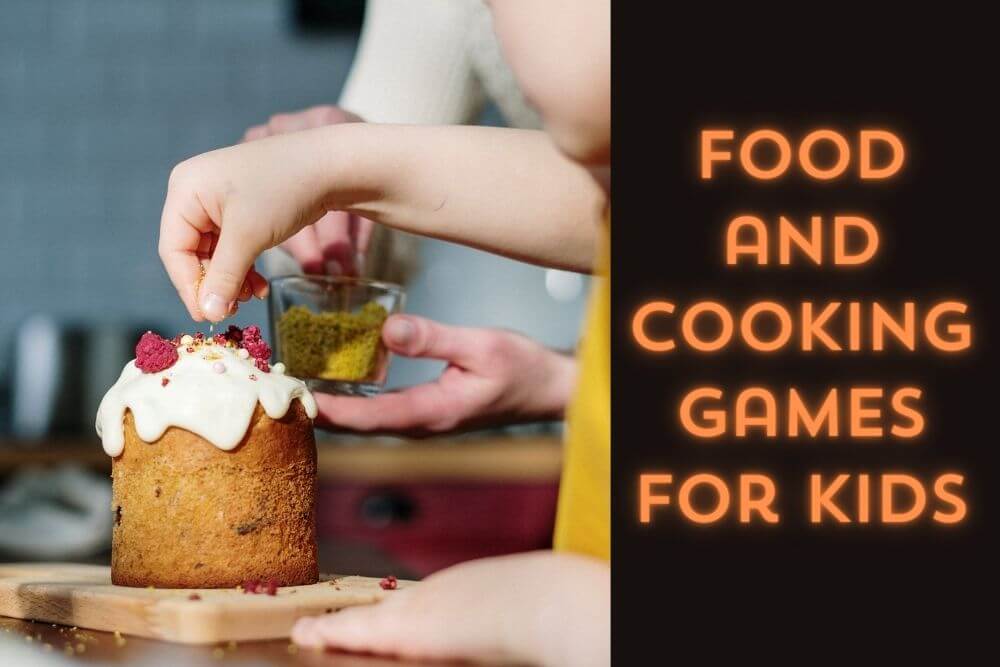Dig In and Have Fun: Food and Cooking Games for Kids
Food and cooking games have long been a staple in the world of children’s entertainment, offering more than just fun and giggles. From sparking an interest in healthy eating to nurturing creativity and building confidence, these games can play a valuable role in a child’s development. Let’s explore the delicious world of food and cooking games for kids, highlighting their benefits, popular trends, and exciting options for all ages and interests.
Growing Benefits of Playful Plates:
Studies have shown that food and cooking games can benefit children in several ways:
- Nutritional Awareness: By playing with virtual ingredients and experimenting with recipes, kids gain exposure to different foods and their properties. This can increase their willingness to try new things at the dinner table and develop a more positive relationship with food.
- Creative Expression: Food games unleash imaginations. Kids can design unique dishes, decorate virtual cakes, and experiment with flavors, fostering creativity and problem-solving skills.
- Fine Motor Skills: Chopping, mixing, and decorating in-game can help develop hand-eye coordination and fine motor skills, laying the foundation for real-life culinary adventures.
- Basic Math and Science: Measuring ingredients, following recipes, and understanding cooking times introduce mathematical concepts and scientific principles in a fun and engaging way.
- Socialization and Collaboration: Many food games involve playing with friends or family, encouraging teamwork, communication, and sharing.
Food Trends Shaping Playful Plates:
The world of food is constantly evolving, and these trends are reflected in children’s food games:
- Focus on Healthy Eating: Games are incorporating more fruits, vegetables, and whole grains, reflecting the growing emphasis on healthy eating habits.
- Global Flavors: Kids can explore diverse cuisines from around the world, expanding their knowledge and appreciation for different cultures.
- Sustainability Awareness: Food games are introducing concepts like composting and reducing food waste, fostering a sense of environmental responsibility.
- Food Science Fun: Exploring the science behind cooking reactions and transformations ignites curiosity and inspires future scientists.
- Real-Life Inspiration: Many games connect virtual experiences to real-life cooking, encouraging kids to try out recipes in their own kitchens.
Delicious Delights for Different Appetites:
With so many food and cooking games available, finding the right one for your child can be fun in itself. Here are some popular options across age groups and interests:
Preschoolers (3-5 years old):
- Toca Kitchen: This open-ended app lets kids explore different food stations, experiment with ingredients, and create silly concoctions.
- Sesame Street Cooking ABCs: Fun and educational, this app teaches preschoolers about letters and healthy eating through interactive cooking activities.
- Food Monster Chef: Kids help a funny monster cook healthy meals by sorting ingredients and learning about food groups.
Early Elementary (6-8 years old):
- Cooking Mama: This classic series challenges kids to follow recipes, chop ingredients, and cook a variety of dishes in a cute and colorful world.
- Pizza Party!: Aspiring pizzaiolos can create their own personalized pizzas with various toppings and learn about fractions and time management.
- Ice Cream Truck Tycoon: Running a virtual ice cream truck teaches kids about business basics, money management, and customer service while making yummy treats.
Tweens and Teens (9-13 years old):
- Good Pizza, Great Pizza: Manage a pizza restaurant, taking orders, making pizzas, and dealing with demanding customers in this realistic and engaging game.
- Cake Mania: This fast-paced game tests speed and multitasking skills as players bake and decorate cakes for various customers.
- Chopped Junior: Inspired by the popular TV show, kids compete in virtual cooking challenges, creating dishes based on mystery ingredients.
Beyond the Games:
Food and cooking games are a fantastic springboard for real-life culinary adventures. Parents and caregivers can:
- Cook Together: Use the game as inspiration to prepare the dish in your own kitchen.
- Talk About Food: Discuss the ingredients, their origins, and their nutritional value.
- Get Creative: Encourage kids to experiment with new flavors and presentation ideas.
- Visit a Farmers Market: Introduce kids to fresh, local ingredients and explore the world of food production.
Conclusion:
Food and cooking games for kids offer a unique blend of entertainment and education. By immersing children in the virtual kitchen, these games help develop essential life skills such as creativity, organization, and even basic culinary knowledge. As parents, introducing your kids to these delightful games can set them on a path to appreciating the joys of cooking while having a blast in the process. So, why not let your little chefs embark on a digital culinary adventure today?
Some Videos for kids cooking ideas
Food for Thought (FAQs):
Are food and cooking games addictive?
While moderation is key with any screen time, most food games are designed to be educational and engaging, not addictive.
Do these games promote specific brands or unhealthy food choices?
Be mindful of games with product placements or unhealthy food emphasis. Opt for games that prioritize healthy ingredients and balanced meals.
Can games replace real-life cooking experiences?
No, games are best used as supplements to real-life cooking experiences.

